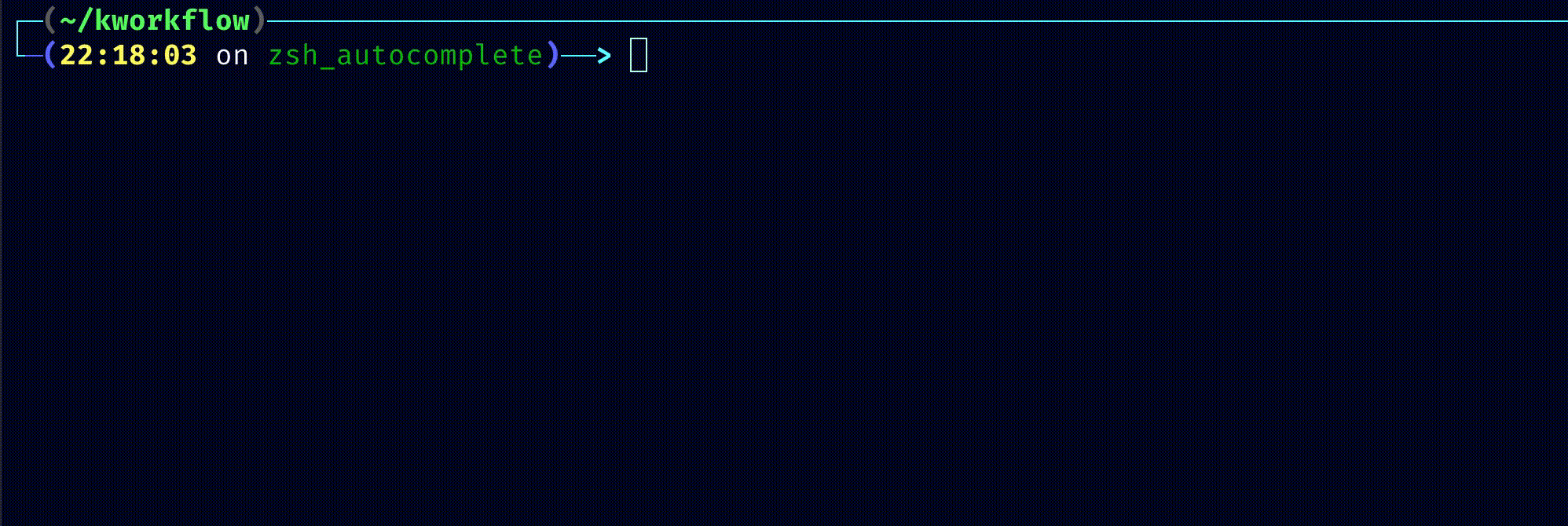Being a somewhat new user of Zsh - made the transition from Bash around 2 months ago - I never thought I would have to learn about its completion system or how to write my own custom completion functions so soon.
As of writing, I’m almost at the end of a long PR that aims to bring support for native Zsh completions to kw. In this post, I’m going to share exactly what I think “bring support for native Zsh completions to a tool” means, its benefits and what it encompasses in the context of this PR. You can find the PR at this link.
Motivation and Benefits
As I already stated, I’m a new Zsh user, so when I came across the issue in kw reported here, I thought it was something related to my setup and configurations. Upon further digging, I understood that the Zsh completions to kw were adapted from the Bash ones using the bashcompinit command and that an incompatible function was the reason the Zsh completions were broken (refer to the issue for more info). This encouraged me to get my hands dirty and try to add native Zsh completions to kw.
Even further, for those that never explored far enough a completion system of a shell (like me, before Zsh) below is a demo of it for the kw config command. Important to note that this whole time the “completions” I’m referring to are sometimes called “tab completions”, as they are triggered by pressing the TAB key.
Notice two benefits from having completions for a given tool:
- You somehow attach the documentation of the tool and its commands/options to its usage. The user can sometimes avoid having to look in an extensive documentation or having to search for online guidance on how to execute some task (although a “completions documentation” is probably really superficial).
- Completions really improve the user experience of a tool, as it greatly reduces the amount of typing and typing related errors. Having the above GIF in mind, the word
build.cpu_scaling_factor, for example, refers to a pair<kw-command>.<command-config>that must be known to the user (and typed correctly) before the use of thekw configcommand, if there are no completions for it.
Both benefits can be an important factor in making the tool more user-friendly.
Writing native Zsh completion functions
Maybe I’m not suited for this type of system, but I’m not gonna lie: it is a considerable challenge to create completions to a tool. There are two main challenges in implementing completions:
- Technical aspects such as getting the TAB key-press or defining what is a word and when it is considered completed.
- Really understanding the tool as a whole is critical, because you are going to have to document it and know about domain-specific logics like mutually exclusive options, different type of arguments and how to complete them and so on.
The first challenge was (thankfully) already done by Zsh, but comes with a price that “there are probably lots of bugs around”, as stated by the official Zsh documentation, making some unavoidable utility functions act weird sometimes.
The second challenge was also really simplified by the wonderful documentation of the kw project. Of course, I had to mess around a little with some kw commands I wasn’t acquainted, and sometimes the documentation was a little outdated, but it would not be possible to cover all the kw commands without it.
For more detailed information on how to write your own Zsh completion functions, refer to:
- Short but great intro to Zsh completions
- A thorough and official tutorial on writing custom Zsh completions
- “Man-page” for some Zsh completion utility functions
As of writing, there are 28 commits in the PR. There is one commit to each kw command, more or less.
What is next?
- There is no automated way to test the validity of the implementations and manual testing is really prone to errors
- Probably there are some interpretation errors on my part, so some domain- specific logic may not be well represented by the completions
- Although one can follow the references above and also learn from the PR, the Zsh completions system is really complex and has some hard-to-learn and unexpressive syntax, so altering/expanding any kw command and having to update the Zsh completions is not a straightforward task. Maybe a tutorial or additional documentation is needed to simplify this process.
